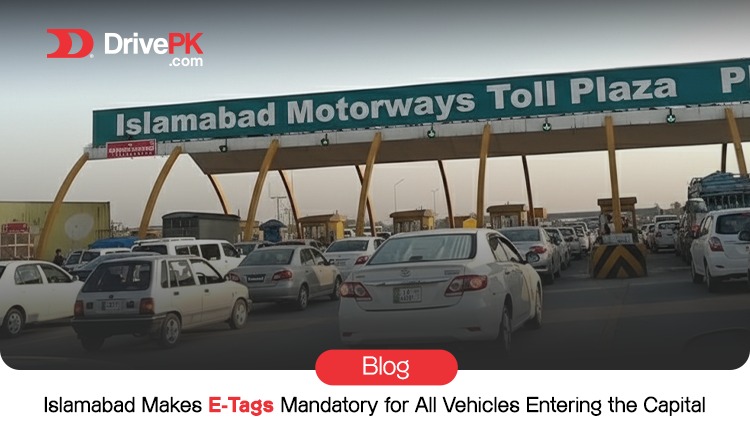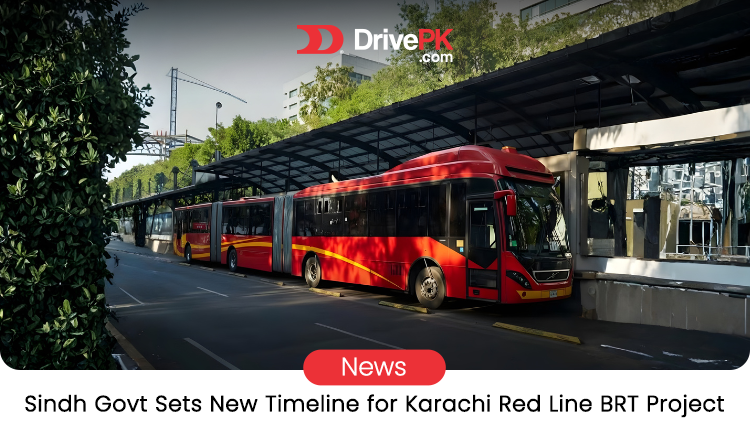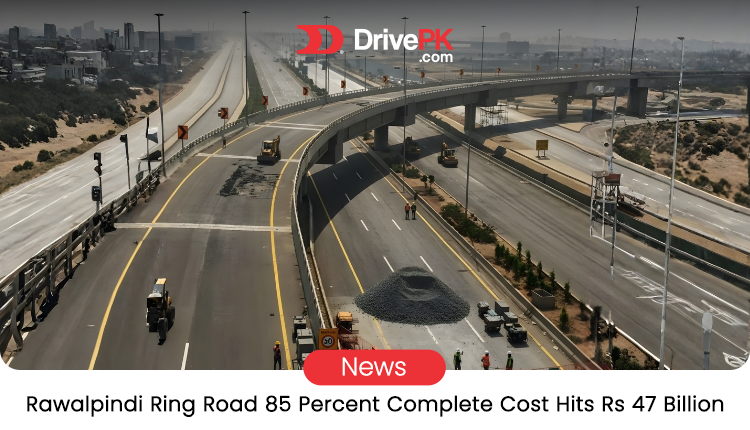Islamabad’s New E-Tag Rule: Cleaner Air or Tougher Commutes?
Islamabad has introduced mandatory E-tags for all vehicles entering the city. In the next two weeks, every driver must pass a carbon emission test to qualify. This strict move aims to fight rising smog, but it also adds pressure on commuters relying on older cars.

Table of Contents
- What’s an E-Tag, and Why Now?
- More Than Just E-Tags
- Why This Matters
- What’s Next?
Islamabad’s New E-Tag Rule: Cleaner Air or Tougher Commutes?
Islamabad’s air isn’t as fresh as it used to be. Smog creeps in every year, choking the city and making it harder to breathe. To tackle this, the Islamabad administration is rolling out a bold new plan: mandatory E-tags for all vehicles entering the capital. If you don’t have one in two weeks, you’re not getting in, no exceptions.
What’s an E-Tag, and Why Now?
Starting soon, every car, truck, or bike entering Islamabad needs an E-tag. But it’s not just a sticker you slap on your windshield. To get one, your vehicle must pass a carbon emission test. Fail the test, and you’re stuck without a tag. This rule applies to everyone, even residents. The goal? Cut down on pollution and make Islamabad’s air cleaner.
Interior Minister Mohsin Naqvi is leading the charge, and he’s clear: no tag, no entry. The deadline is tight, just two weeks from now. If you drive in the capital, it’s time to get your vehicle checked.
More Than Just E-Tags
The E-tag rule is part of a bigger push to fight smog. The administration, guided by Chairman CDA Muhammad Ali Randhawa, is cracking down on other pollution sources too. Garbage burning? Banned. Brick kilns and industries? They’re being switched to eco-friendly systems. Environmental laws are also getting stricter enforcement. It’s a full-on effort to make Islamabad greener and healthier.
And it’s not just talk. These steps show the city means business. But the E-tag rule is the one hitting drivers directly, and it’s got people talking.
Why This Matters
Smog isn’t just an annoyance; it’s a health risk. It irritates eyes, triggers asthma, and worse. Islamabad’s administration is betting that cleaner vehicles will make a real difference. Fewer high-emission cars on the road could mean fresher air for everyone.
But here’s the flip side: the new rule might be a hassle. Getting your vehicle tested takes time and money. If your car fails, repairs aren’t cheap. And with only two weeks to comply, some drivers feel rushed. Plus, what happens to commuters who rely on older vehicles? Not everyone can afford a newer, low-emission car.
What’s Next?
The clock’s ticking. If you drive in Islamabad, find a testing center and get your E-tag sorted. The administration hasn’t shared details on testing locations yet, but keep an eye out for updates. This rule is just the start, expect more eco-friendly changes as the city doubles down on cleaning up its air.
For now, the message is simple: get your vehicle tested, grab that E-tag, and help make Islamabad’s air worth breathing again. But be ready for a few bumps along the way. For more updates, visit DrivePK.com
Tags
Share this article
About the Author
Najeeb Khan
Automotive enthusiast and writer
Comments (0)
Login Required
You need to be logged in to comment on this article.
No comments yet. Be the first to share your thoughts!
Related Articles

Karachi Red Line BRT Project Update 2026: Sharjeel Inam Memon Shares Timeline and Challenges
Sharjeel Inam Memon updated on the Red Line BRT in Karachi. The project could need another 18 months to complete after facing big challenges. Side roads will be ready before Eid. Key work on University Road finishes soon. Efforts continue to clear bus import hurdles

Islamabad Electric Tram Service 2026: CDA Starts Feasibility Study for New Routes
Capital Development Authority has begun work on an electric tram service in Islamabad. The move follows direct orders from the federal interior minister. The feasibility study must finish in three months. Routes planned from Islamabad Airport and Rawat to Lake View Park. The system will be fully cashless.

Thalian Interchange Work Starts Next Week on Rawalpindi Ring Road, Cost Now Rs 47 Billion
Work on the Rs 5 billion Thalian Interchange of the Rawalpindi Ring Road starts next week. The divisional administration will acquire 358 extra kanals near the motorway, raising the total project cost to Rs 47 billion. More than 85% of the road is already finished. Bookings for toll and e-tags are expected to follow the Lahore model at Rs 80 per vehicle.